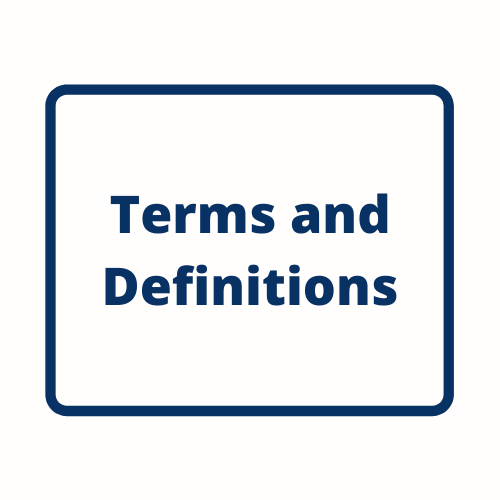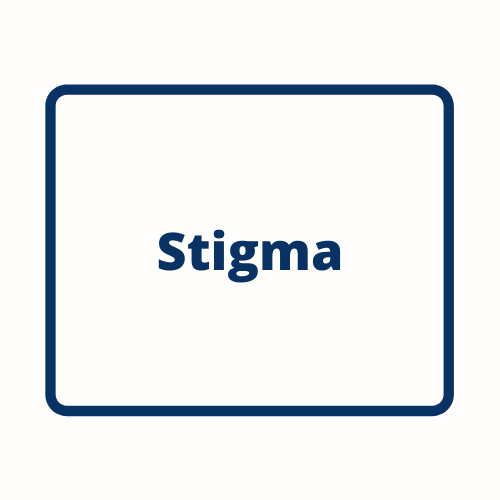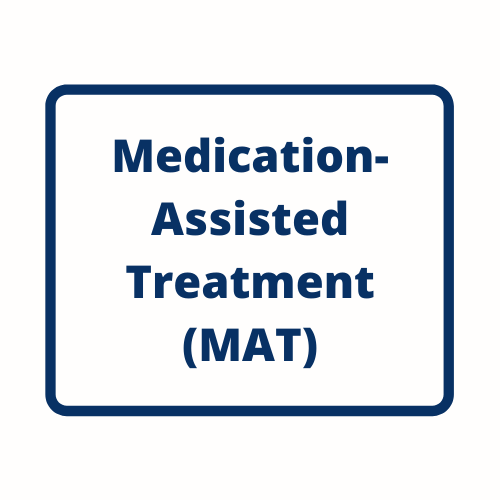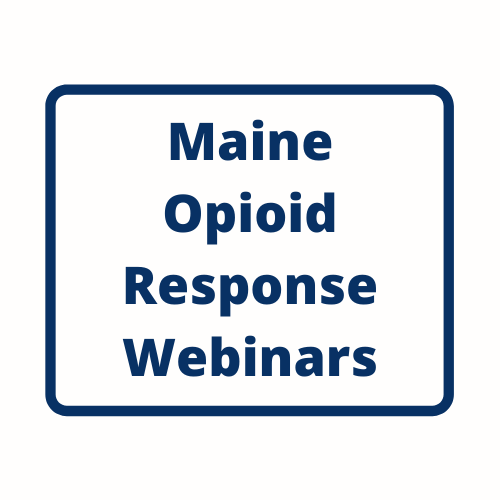Maine PCSS-U has collected the following resources to support students who are interested in learning about treating substance use disorder (SUD)/opioid use disorder (OUD). Click on a topic below to read more.
Medication Assisted Treatment
What is MAT?
Medication-Assisted Treatment (MAT) is the use of medications, in combination with counseling and behavioral therapies, to provide a “whole-patient” approach to the treatment of substance use disorders. It is also important to address other health conditions during treatment.
Qualified practitioners can offer buprenorphine, a medication approved by the Food and Drug Administration (FDA), for the treatment of opioid use disorders (OUD).
Qualified practitioners include physicians, Nurse Practitioners (NPs), Physician Assistants (PAs), Clinical Nurse Specialists (CNSs), Certified Registered Nurse Anesthetist (CRNAs), and Certified Nurse-Midwifes (CNMs).
What is the DATA waiver or ‘x’-waiver?
UNE COM now requires waiver training for all 4th year students. All UNE COM students will graduate waiver trained and ready to apply for the waiver when they apply for their DEA license.
The Drug Addiction Treatment Act of 2000 (DATA 2000) allows qualified practitioners to prescribe buprenorphine.
When physicians qualify for the waiver, they are given a second DEA number (i.e., in addition to the standard DEA prescribing number). This number begins with ‘X’, prompting the common nickname ‘X-waiver’.
Reducing Stigma

Shatterproof defines 4 types of stigma:
- Self-Stigma: accepting and internalizing negative stereotypes about oneself
- Public Stigma: negative attitudes and fears that isolate those with addiction
- Stigma Against Medication: belief that medications “trade one addiction for another”
- Structural Stigma: excluding those with addiction from opportunities and resources
Read more about Shatterproof’s approach to Ending the Stigma of Addiction

Free Online Course: Reducing Stigma Education Tools (ReSET)
Stigma towards patients with opioid use disorder (OUD) remains a substantial barrier to individuals living with addiction accessing health care and receiving appropriate treatment. Stigma towards individuals with OUD occurs not only in general society but also in health care settings. Stigmatizing attitudes by health care providers towards patients with OUD are often implicit or unconscious, and these attitudes and resulting behaviors lead to suboptimal health care outcomes for these patients. These attitudes can also instill feelings of shame in these patients, leading to a mistrust of providers and an avoidance of health care encounters altogether.

There are simple things we all can do to help take better care of people with opioid use disorder. Better words we can use. Treatments we can offer. Trusting relationships we can build.
The aim of these modules is to help health care providers confidently identify and address stigma surrounding opioid use disorder, to ensure the delivery of equitable and compassionate health care for all patients living with opioid addiction.
The modules are available online. Register here for free access.
Reducing Stigma Through Language
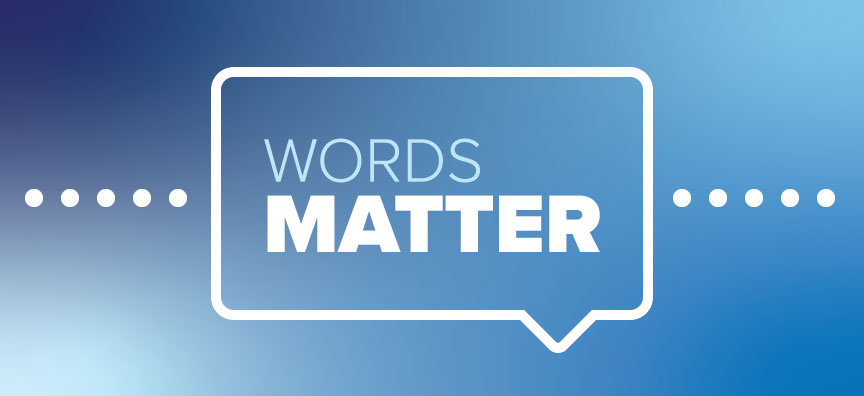
Person-first language can reduce stigma by separating the person and the disease. Stating that someone has an illness rather than that they are the problem avoids eliciting negative associations, punitive attitudes and individual blame. Clinically accurate terminology can promote treating Substance Use Disorder as a medical condition.
Talking about yourself or others with Substance Use Disorder:
| USE THIS | NOT THIS |
| Person with a substance use disorder | Addict, User, Drug abuser |
| Person with opioid use disorder | Junkie |
| Person with alcohol use disorder | Alcoholic, Drunk |
| Person in recovery | Former addict/alcoholic |
| Testing positive on drug screen | Dirty, failing drug test |
| Being in recovery, not drinking or taking drugs, abstinent from drugs | Clean |
| Use (illicit substances) Misuse (prescribed medications) | Abuse (ie drug abuse) |

